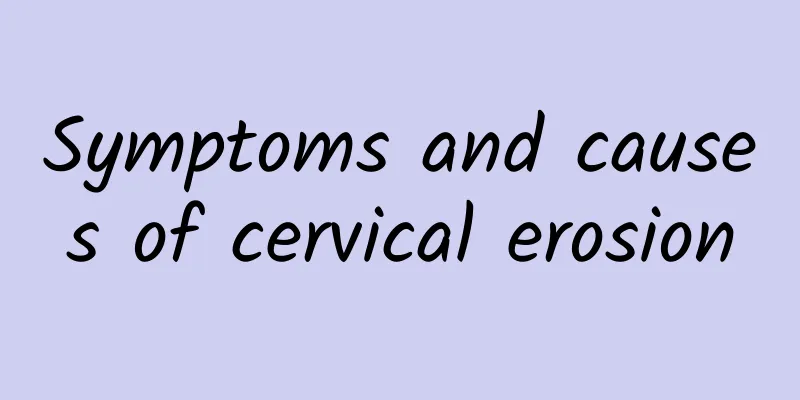What are the clinical manifestations of pelvic peritonitis?

|
Pelvic peritonitis is a very common gynecological disease. It is not difficult to treat, but it can cause great harm to women's health. Therefore, female friends should understand in detail the clinical symptoms of pelvic peritonitis so that they can better treat this disease. Pelvic peritonitis, or pelvic peritonitis, refers to inflammation of the female pelvic reproductive organs, the connective tissue around the uterus, and the pelvic peritoneum. Chronic pelvic peritonitis is often caused by incomplete treatment of the acute phase. It takes a long time to develop and is a stubborn condition. Bacteria retrogradely infect the uterus and fallopian tubes and reach the pelvic cavity. But in real life, not all women will suffer from pelvic peritonitis, only a few will. This is because the female reproductive system has a natural defense function that can resist bacterial invasion under normal circumstances. Pelvic peritonitis will only occur when the body's resistance is reduced or the natural defense function of women is destroyed due to other reasons. Experts say pelvic peritonitis is caused by human papillomavirus (HPV) infection and is highly contagious. Pelvic peritonitis often occurs in the genitals at the junction of the skin and mucous membranes. In men, it is more common in the coronary sulcus, penis, foreskin, and urethral opening, and in women, it is more common in the vulva, labia majora and minora, cervix, vagina, vaginal opening, urethra, and anus. The recurrence rate is high, the harm is great, and it is very easy to become cancerous. Therefore, patients with pelvic peritonitis should go to a regular hospital for treatment as soon as possible to prevent future troubles. Symptoms of pelvic peritonitis: During the development of pelvic peritonitis, most patients do not feel any discomfort, such as itching, pain and other subjective symptoms. A very small number of patients may have mild itching and tingling in the local area. Generally, the site of pelvic peritonitis is moist, local secretions will increase, and the chance of bacterial infection will also increase. If bacterial infection occurs, local redness, swelling, and pain may occur, and erosion, ulcers, necrosis, exudate or obvious purulent fluid may also occur. Pelvic peritonitis damage occurs in the urethra, and patients may have urethral discomfort, overflow urine, gross hematuria, secretions discharged from the urethra, a sense of urethral obstruction, poor urination or difficulty urinating. These symptoms are more obvious in men than in women. If the damage occurs in the mouth or throat, people may have difficulty eating, swallowing, and hoarseness. In severe cases, pelvic peritonitis damage may block the trachea and cause suffocation and death, especially in infants and young children with pelvic peritonitis. In men, there may be blood in the ejaculation. In addition, if pelvic peritonitis occurs in the urethra, frequent urination, urgent urination, painful urination, and changes in urine flow curve may also occur. Therefore, if people find similar symptoms, they should go to a regular hospital for professional treatment in time to completely cure pelvic peritonitis. Now after reading the above article, we have a detailed understanding of the clinical symptoms of pelvic peritonitis. After this disease occurs, it will cause great harm to women. In fact, it will lead to the occurrence of other complications, which will greatly increase the difficulty of treatment and cause greater harm to their bodies. |
<<: What are the symptoms of pelvic peritonitis
>>: What are the symptoms of pelvic peritonitis?
Recommend
How to take good care of women's uterine effusion
Although uterine effusion is not a common gynecol...
Several common factors are likely to cause the high incidence of vaginitis
Among gynecological diseases, vaginitis is also c...
What are the common methods of individualized treatment of endometriosis?
The treatment of endometriosis currently advocate...
What causes endometrial polyps?
Endometrial polyps are a common gynecological dis...
Can I drink soy milk if I have pelvic inflammatory disease?
Patients with pelvic inflammatory disease must re...
Iron Mom Jia Yongjie's 5 Principles of Sports Events
The rise of the fashion sports trend has led many...
Is the uterine fluid discharge blood?
Uterine effusion is not necessarily blood, but it...
Is dysmenorrhea caused by uterine contraction?
Dysmenorrhea is not uterine contraction. Dysmenor...
Dietary guidance for hyperprolactinemia
Hyperprolactinemia patients need to have a correc...
How long after taking abortion pills can you eat? What nutrients do you need to supplement after abortion?
Medical abortion is achieved by taking drugs to c...
Experts describe the main symptoms of adnexitis for us
The fallopian tubes and ovaries in the female rep...
Diet therapy for ovarian cysts
Ovarian cysts are a type of ovarian tumor. Physio...
How is pelvic inflammatory disease diagnosed?
I believe everyone is familiar with pelvic inflam...
Eat French fries as a meal! 30% of school children have red flags when eating out
Children's Day is approaching, and a survey f...
How much does cervical erosion surgery cost?
The cost of cervical erosion surgery is still ver...









